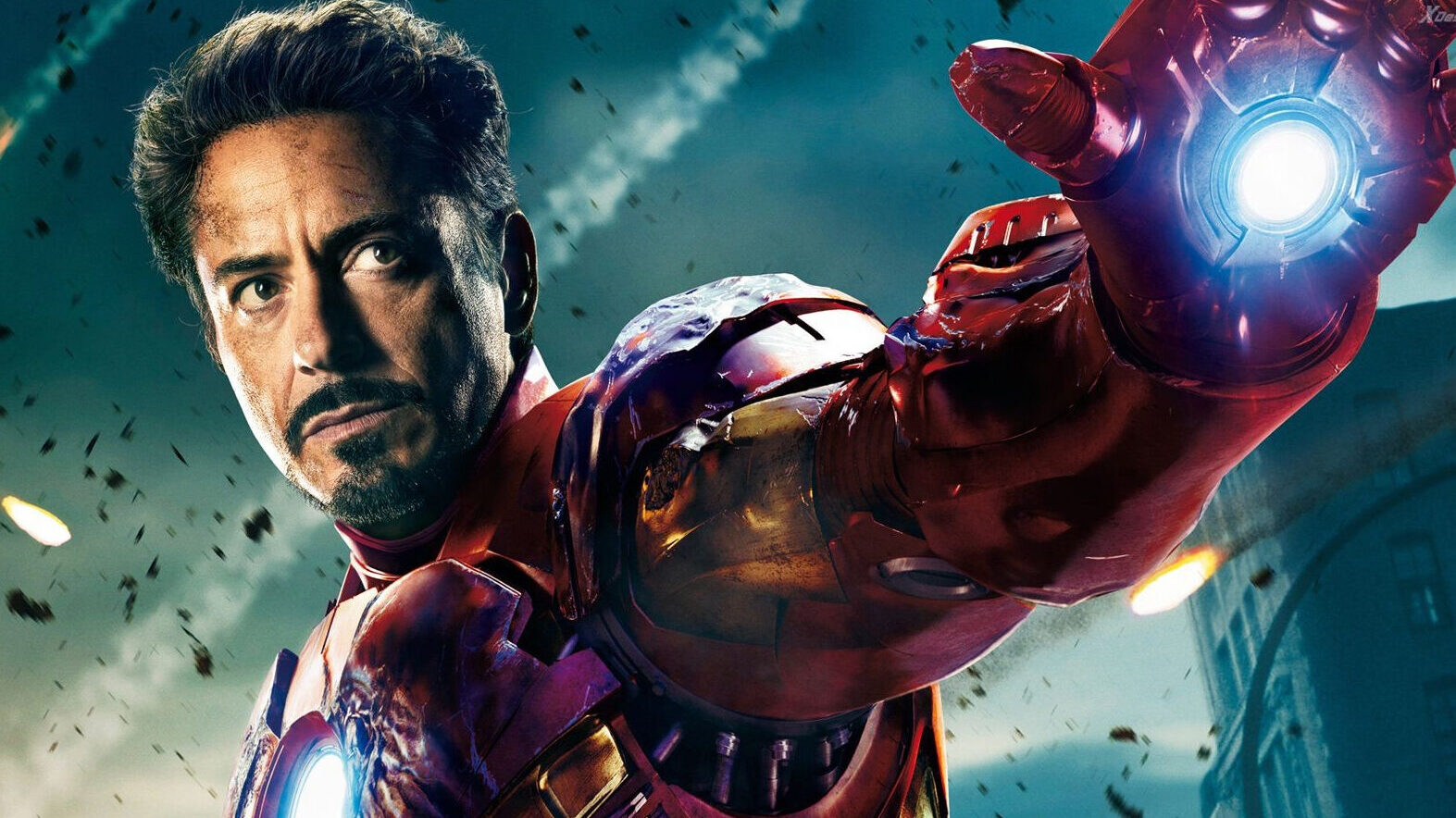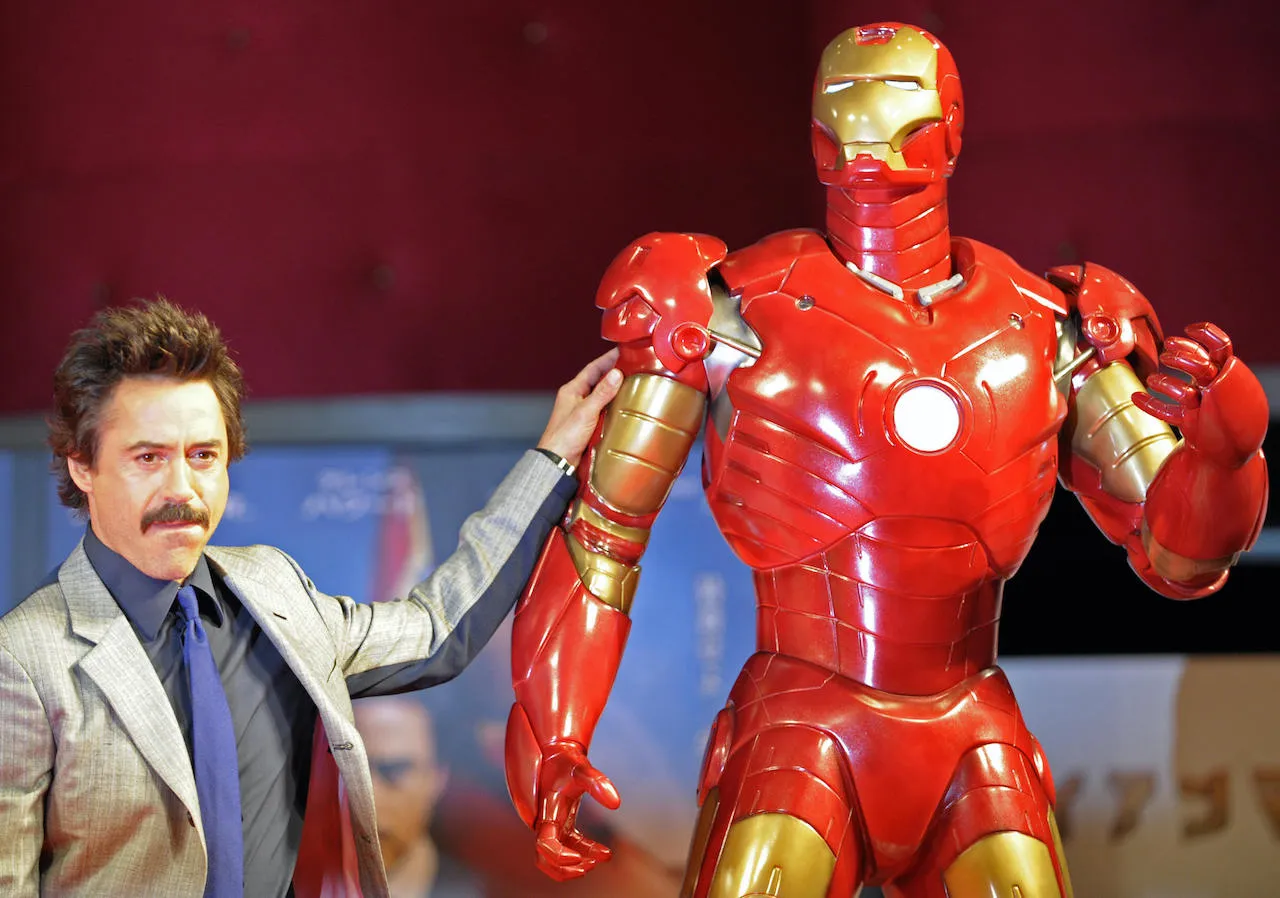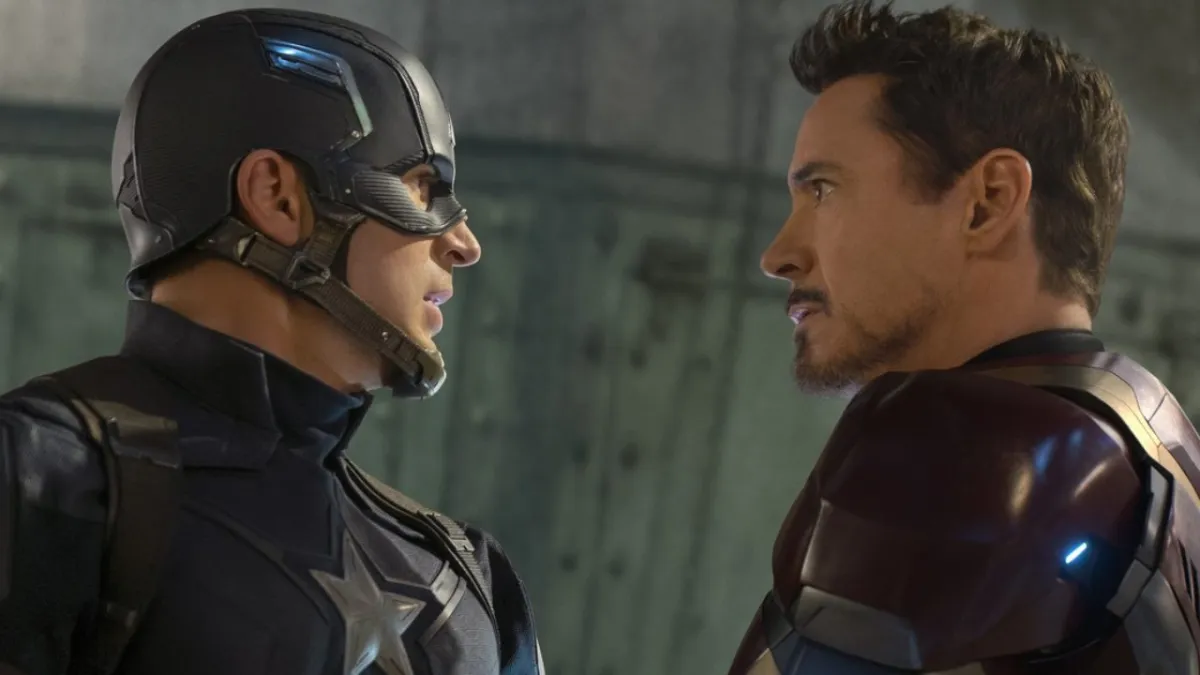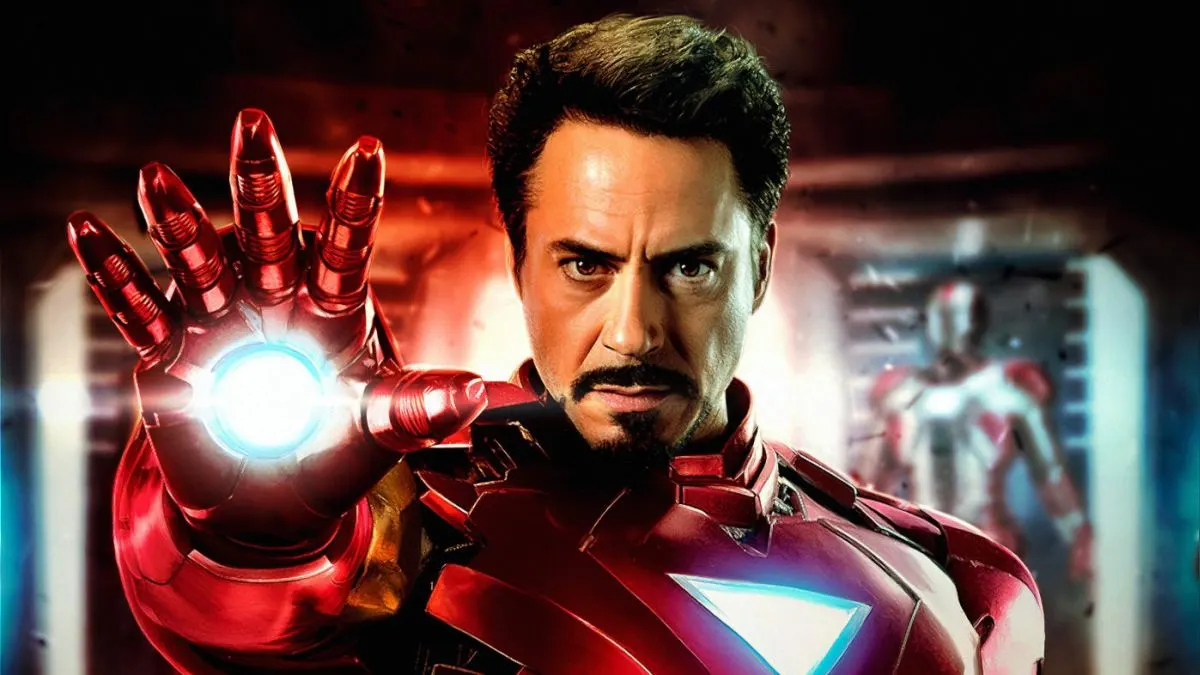‘You can’t judge a book by its cover’ is an adage that fits perfectly when discussing the transformation of Iron Man under the Russo Brothers. They added layers of complexity to Tony Stark, taking him beyond the flamboyant billionaire and genius inventor and making him relatable and vulnerable.

They presented Stark in a way that was more human, more flawed, and thus more believable. But how exactly did they accomplish this? We’ll explore that in our discussion, bringing to light the techniques and storytelling methods that were key in this transformation.
So, are you ready to plunge into the depths of Iron Man’s evolution?
Key Takeaways
- The Russo Brothers introduced depth and complexity to Iron Man, breaking away from a one-dimensional portrayal.
- Stark’s character growth and emotional vulnerability were significantly highlighted in ‘Captain America: Civil War’.
- Through the exploration of Stark’s guilt and consequences, the Russo Brothers showcased his evolution into a more responsible hero.
- Stark’s ideological conflict with Rogers in ‘Civil War’ and his legacy in the MCU marked significant milestones in his character growth.
The Birth and Struggles of Iron Man

In the wake of Iron Man’s introduction in 2008 by Jon Favreau, the character, portrayed by Robert Downey Jr., exploded onto the scene, kickstarting the Marvel Cinematic Universe (MCU) with its initial critical and commercial success.
However, notwithstanding the initial triumph, the birth struggles of this iconic character were conspicuous. As the MCU expanded, Iron Man’s character growth hit a plateau. The balance between humor and drama teetered, with Stark’s constant quips causing audience fatigue. There was a looming risk of him becoming one-dimensional. The challenge was to keep Stark’s character engaging without losing the essence that made him a fan favorite.
For a character of such magnitude, the struggle was real, and a fresh perspective was necessary.
Russo Brothers’ Marvel Journey

When the Russo Brothers, Anthony and Joe, stepped into the Marvel Cinematic Universe, they brought a much-needed fresh perspective that would ultimately reshape Iron Man’s character. Their dynamic was unique, blending a profound understanding of complex character arcs with a knack for nuanced storytelling. Here’s what stood out:
- They brought depth to the characters, making them more relatable and complex.
- They found the perfect balance between drama and humor, steering clear of the pitfalls of one-dimensional storytelling.
- They weren’t afraid to challenge the status quo, shaking up the Marvel storytelling formula in a way that breathed new life into the franchise.
Iron Man’s Transformation in Civil War

Taking a closer look at ‘Captain America: Civil War’, you’ll see how the Russos truly reshaped Tony Stark’s character, marking a significant turning point for Iron Man in the Marvel Cinematic Universe. They added depth and complexity to his persona, presenting a more mature, conflicted Stark.
The character dynamics they introduced, particularly between Stark and Rogers, added new layers to Tony’s character. You’ll notice a deliberate focus on his emotional growth, with less emphasis on his comedic side. The Russos also highlighted Stark’s vulnerability, making him relatable and human.
This transformation not only reinvigorated Iron Man’s character but also set the stage for his future arcs. It’s clear that under the Russos, Iron Man flourished, becoming more nuanced and compelling.
Stark’s Guilt and Consequences

You’ll find a pivotal aspect of Tony Stark’s evolution in ‘Captain America: Civil War’ is the exploration of his guilt and the consequences of his actions. This is where the Russos truly excel, adding depth to Iron Man’s character in ways that hadn’t been fully explored before.
- Emotional Growth: Stark’s guilt over Ultron and the damage caused forces him to confront his actions, leading to significant emotional growth.
- Character Consequences: His choices result in direct, tangible consequences, making his journey more realistic and relatable.
- Reflection and Redemption: Stark seeks to make amends, demonstrating his evolution from a self-centered genius to a responsible hero.
This exploration of guilt and consequences elevates Stark’s character, making him more complex and human, and hence, more engaging.
Civil War: Stark Vs Rogers

Another compelling aspect of Tony Stark’s journey in ‘Captain America: Civil War’ is his escalating conflict with Steve Rogers. This clash isn’t just about superheroes disagreeing, it’s an ethical dilemma that fuels Stark’s growth.
You see, Stark’s mantra of accountability and regulation contrasts sharply with Rogers’ prioritization of freedom and autonomy. This disagreement leads to the ‘Civil War’, a division that shakes the Avengers to their core.
Stark’s stance shows a shift from his previous cavalier attitude, highlighting his maturation. Yet, he’s met with opposition from Rogers, who stands by his principles firmly. This feud not only enhances the narrative tension but also deepens Stark’s character, affirming how far he’s come from being the self-centered genius in ‘Iron Man’.
Iron Man’s Vulnerability and Depth

How can we forget the profound vulnerability and emotional depth the Russo Brothers brought to Tony Stark’s character in ‘Captain America: Civil War’? They transformed Iron Man’s persona, making him more than a flashy superhero.
- Emotional depth: Stark’s guilt over past actions and his struggle with regret added layers to his character. He wasn’t just a billionaire in a suit; he was a man wrestling with his conscience.
- Character growth: Stark’s evolution was palpable. He moved from a playboy archetype to a complex hero grappling with personal demons, showing us growth that’s rare in superhero flicks.
- Vulnerability: The Russos showcased Stark’s vulnerability, offering us glimpses of his inner complexity. This made him more relatable, humanizing a character who might otherwise have been seen as invincible.
Tony Stark’s Ultimate Sacrifice

In the grand finale of ‘Avengers: Endgame’, Stark’s ultimate sacrifice forever marks a significant turning point in the Marvel Cinematic Universe. By securing back the Infinity Stones and snapping his fingers, Stark guaranteed the victory of the Avengers, but at the cost of his own life.
This heroic sacrifice reflects Stark’s transformation from a self-absorbed genius to a selfless hero. It’s an emotional climax, starkly contrasting his character’s initial introduction, and demonstrating the depth and maturity the Russo brothers brought to his character.
The emotional impact of this moment resonates with audiences worldwide, reminding us that heroes aren’t just about flashy powers and witty one-liners, but about the willingness to make the ultimate sacrifice. The Russos’ deft handling of this moment ensures Stark’s place in cinematic history.
Iron Man’s Legacy in MCU

Stark’s ultimate act of selflessness, as masterfully portrayed by the Russos, has left an unforgettable mark on the MCU, setting the stage for us to explore the enduring legacy of Iron Man.
Iron Man’s impact and legacy in the MCU can be boiled down to three main elements:
- He’s the foundation stone that set the tone for the MCU. His wit, charm, and flawed heroism made the universe relatable and engaging.
- He’s been a mentor figure to many heroes, shaping their journey and morality.
- His influence extends beyond his death, with his ethos and inventions continuing to shape the MCU.
Iron Man’s proof is a testament to the Russos’ deft handling of the character, ensuring his influence endures, shaping the MCU’s future.
Stark’s Influence on Superhero Future

Delving into the future of the superhero genre, you quickly realize the profound impact Tony Stark, as shaped by the Russo brothers, continues to have. Stark’s impact isn’t limited to the Marvel Cinematic Universe. It transcends it, influencing the entire superhero genre.
His evolution from a self-absorbed genius to a self-sacrificing hero sets a precedent for character development. The Russo brothers’ take on Stark, portraying him as flawed yet aiming for redemption, adds depth to the superhero persona. They’ve effectively changed the game, making it hard for any future superhero film to ignore Stark’s legacy.
Consequently, the superhero evolution we’re witnessing today, with more complex, human-like characters, is largely due to Stark’s influence. Simply put, he’s redefined what it means to be a superhero.
Reception of Iron Man’s Evolution

So, how has the audience reacted to the evolution of Iron Man’s character under the Russo brothers’ direction? In simple terms, they’ve loved it. The Russo brothers’ touch on Tony Stark’s character growth has led to an overwhelmingly positive Iron Man’s reception.
Here’s a rundown of the top three reasons:
- Fans appreciated the depth added to Stark’s character, showcasing a more human side.
- The Russo’s approach to his character led to a more engaging narrative and enhanced emotional stakes in the MCU.
- Their handling of Stark’s character journey, culminating in his sacrifice in ‘Avengers: Endgame’, was applauded for its emotional impact.
Simply put, the Russos’ contribution in molding Iron Man’s character has been a boon to the MCU, and the fans agree.
Conclusion
So, there you have it. The Russo Brothers didn’t just hit an iron while it was hot, they forged a new one. They took Iron Man from a one-note character to a multi-dimensional hero, grappling with guilt, making sacrifices, and leaving an indelible mark on the MCU.
Their take on Stark hasn’t just set the bar high for future superheroes but also cemented Iron Man’s place in our hearts. That’s the power of nuanced storytelling.